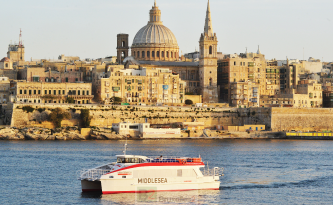Bernard Kouchner (Fr) says to Israel: “open the doors”

(B2)Après le dîner des ministres des Affaires étrangères des 27, avec leur homologue israélienne, Tzipi Livni, outre la conférence de presse officielle (avec la présidence de l’UE), quelques ministres ont confié – souvent en aparté – aux journalistes qui se trouvaient au bon endroit leurs impressions. Il était tard, tout le monde était pressé de rentrer chez lui. Et nous n’étions que quelques journalistes (l’AFP, Radio France, un collègue arabe) quand le ministre français, Bernard Kouchner — qui préside également le Conseil de sécurité de l’ONU (pour quelques jours encore) — est passé. Juste le temps d’un rapide échange de questions (posées par l’AFP et moi-même) pour recueillir ses premières impressions. Voici le résultat :
• What did you get?
“We got to offer the same insistent request, open the doors. Humanitarian aid must absolutely pass; the definition of “humanitarian” aid being, from my point of view, very political and it is an old debate. It is absolutely essential. We cannot pretend that the ceasefire does not exist and go back to what happened before. This is what we asked for, the 27 with one voice, united. We prayed, begged for the doors to open. Me Livini replied that she was very surprised and that, yes, the humanitarian aid should pass, we will see on Thursday (January 22).
• Under what control?
We can have the control we want. We are ready to control, we said. The Israelis and Egyptians are surely ready to control too. It does not matter. For the moment, the doors are closed, much more closed than one would think. For example, the French hospital and the medical team are in Rafah. We send them to Kerem Shalom. And we send them back to Rafah. It's not bearable. We cannot, at the same time, be very satisfied that the rockets are no longer falling on Israel, that the Israeli army is withdrawing and acting as if nothing had happened. Let's see...
• Was there a second point for the Europeans, the reopening of border posts, in particular Rafah?
We absolutely talked about only one point (NB: humanitarian aid).
• Does humanitarian aid also mean opening borders?
You can use any word you want. Help is to stop access to life from being possible. For me, humanitarian aid, I include that in a very large, political volume. (…) You know every day is a fight. (yesterday – Wednesday), we spoke with Me Livni, we listened to him. On Sunday, we talk with our Arab friends. And we will listen to them. And then we will decide at the Council on Monday.
• And the beginning of a dialogue with Hamas?
Nous ne parlons pas au Hamas. Enfin nous parlons par intermédiaire, vous savez très bien tout l’enjeu de cette négociation si longue. Il est évident que s’ils participent à n’importe quel processus de paix – par exemple l’OLP qui demande qu’il y ait un semblant même pas de gouvernement national mais d’unité, ou quelque chose comme çà – nous serons prêts dès lors que le Hamas offre des perspectives de négociation et de paix comme tout le monde, à considérer comme un interlocuteur…. Mais on n’a pas besoin de nous maintenant.
(NGV)
(publié également dans Europolitique – photo : Conseil de l’UE)
